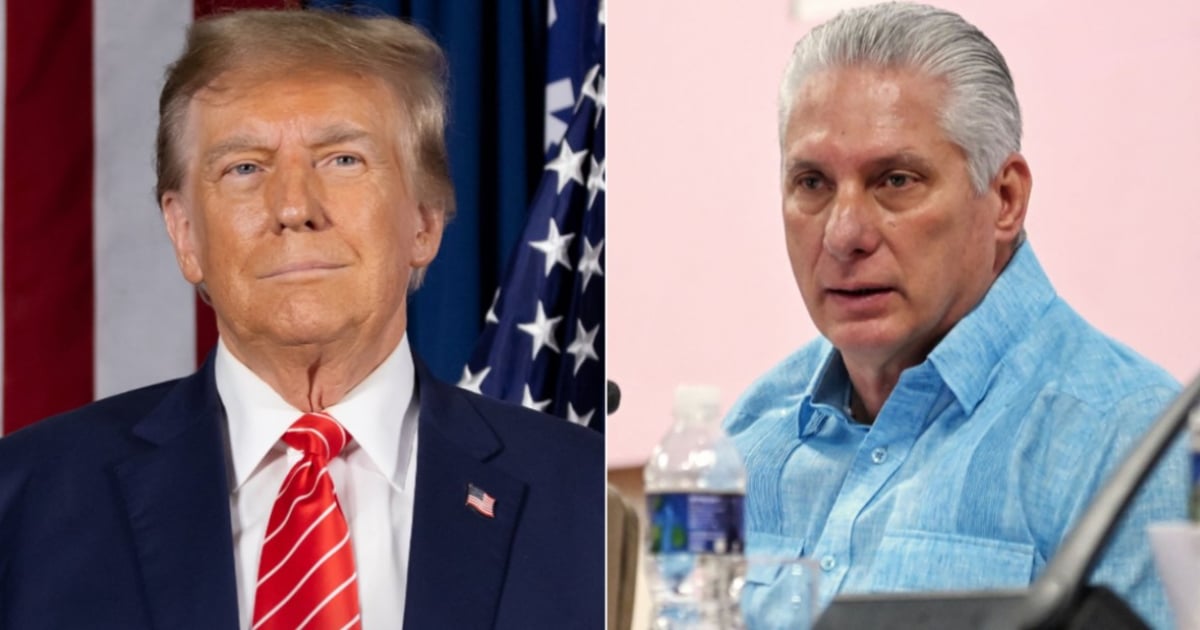Cuban leader Miguel Díaz-Canel took to social media to respond to a recent memorandum signed by U.S. President Donald Trump this Monday. The directive strengthens the embargo and bans U.S. tourism to the island. Rather than showing resilience, Díaz-Canel's reaction, a figurehead appointed by Raúl Castro, revealed deep-seated fears about the policy shift: an intensified external pressure targeting the core of Cuba's repressive regime.
"The impact will be felt, but we will not be defeated," declared Díaz-Canel from the Palace, attempting to project strength while his words betrayed the anxiety of a leader witnessing the unraveling of the power structure sustaining his rule.
Understanding the New U.S. Policy
The recently issued NSPM-5, contrary to Díaz-Canel's claims of being an "aggressive plan against Cuba," is not designed to inflict "maximum damage and suffering" on the Cuban people. Instead, it aims to separate the Cuban populace from those who exploit them under the guise of protection. The strategy focuses on weakening the military and intelligence apparatus, symbolized by conglomerates like GAESA, while fostering individual autonomy through free Internet access, press freedom, and support for private enterprise.
The Regime's True Concerns
These initiatives pose significant threats to the so-called "continuity" of Castroism. The regime fears an informed citizenry with genuine economic opportunities, capable of forming associations, moving freely, and expressing themselves without fear—ingredients for awakening a population.
This is why the reaction from the so-called Palace of the Revolution has been immediate and vehement, recycling the same old propaganda: blockade, imperialist aggression, heroic resistance.
The Real Blockade in Cuba
What Díaz-Canel omits is that the most crippling "blockade" for Cubans isn't in Washington but in Havana: the blockade against free enterprise, free speech, political parties, private property, power alternation, and independent justice. This internal stranglehold, enforced by a single-party system sustained through repression, is the true source of daily suffering for millions of Cubans.
A System in Decline
When the Cuban leader complains that the U.S. acts in response to "narrow and unrepresentative interests," he inadvertently describes his own government model. In Cuba, there is no representation—no free elections, no multiparty system, no free press to hold power accountable. Cuban citizens are reduced to passive spectators in a political charade, where everything is predetermined by an unaccountable party elite.
The Fear of Change
The regime's fear isn't the sanctions themselves but what they could trigger: an acceleration of the internal decay of the system. With a crumbling economy, massive youth emigration, minimal popular legitimacy, and increasing repression merely delaying the inevitable, each measure that curtails funding for the repressive machinery poses a direct threat to a dictatorship that has held power for 65 years, the longest in the Western Hemisphere.
Though Díaz-Canel insists "we will not be defeated," his words sound increasingly empty. History shows that totalitarian regimes don't fall due to external pressure but collapse from within. In Cuba, the process of internal decay is well underway, and the regime is acutely aware.
The Real Threat to the Regime
The regime's true fear isn't Trump, nor Rubio, nor sanctions. It fears the Cuban people when they choose to stop fearing. It fears a generation growing connected, informed, and weary of recycled lies. It fears an active diaspora demanding a role in the country's future. It fears the possibility of free elections, real pluralism, and transitional justice.
This is why they respond with fury to every measure that exposes them. This is why they attempt to frame legitimate humanitarian concerns as interference: concerns about dismantling a system stubbornly clinging to its failed model and paving the way for a free Cuba, where power doesn't have to impose respect through repression, propaganda, and worn-out slogans.
Frequently Asked Questions About U.S. Sanctions on Cuba
What is the purpose of the new U.S. sanctions against Cuba?
The new U.S. sanctions aim to weaken Cuba's military and intelligence apparatus while promoting individual freedoms such as free Internet access, press freedom, and private enterprise.
Why is Díaz-Canel's response significant?
Díaz-Canel's response is significant because it reveals the regime's underlying fears about the potential impact of increased external pressure on its repressive structure.
How does the Cuban regime view the sanctions?
The Cuban regime perceives the sanctions as an aggressive plan aimed at causing maximum damage and suffering, though this view is challenged by the sanctions' actual goals.
